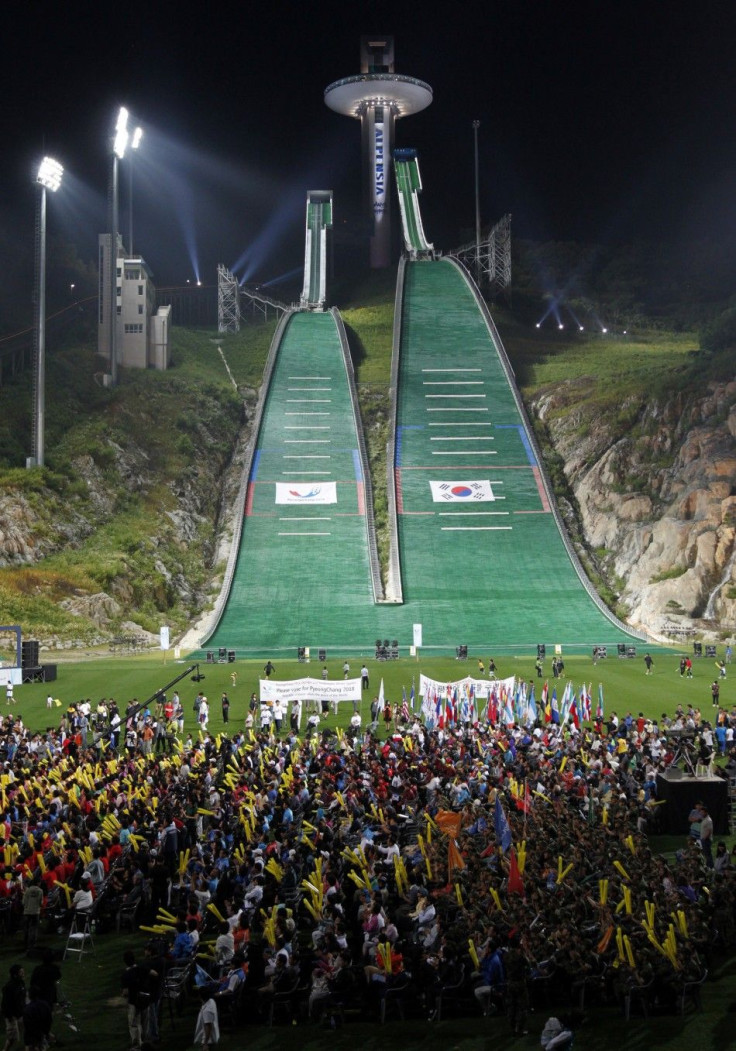Why Pyeongchang Landed 2018 Winter Olympics: Five Reasons

South Koreans are celebrating the IOC's selection of Pyeongchang to host the 2018 Winter Olympics, but the remote alpine town has been the leader in the process all along. Pyeongchang was selected Wednesday over European rivals Munich and Annecy.
Here's why Pyeongchang won the bid for the 2018 Winter Olympics, according to documents filed by the IOC during the selection process:
1) South Koreans were overwhelmingly in favor of hosting the Games. An IOC poll showed support for the Games at 87 percent across South Korea and 97 percent in Pyeonchang. Munich, for instance, had only 60 percent support for the Games in an IOC poll.
2) The South Korean government assured the IOC that hosting the 2018 games was a national priority.
3) The IOC believes the legacy from a 2018 Pyeongchang Games, building on existing legacies from previous Olympic Winter Games bids, would be significant to further develop winter sport in Asia.
4) Pyeongchang's compactness was a major plus for the South Korean alpine town. All venues are within a 30 minutes drive of each other. The $1.5 billion Alpensia resort will host the Alpine events, the main village and the broadcast center. A second, smaller coastal center consisting of five venues including figure skating will be a 20-minute drive down the mountain to Gangneung, a city of 300,000. Annecy, for instance, faced logistical issues, including a relatively spread out system of athlete villages that would pose problems, according to the IOC.
5) Tensions between South Korea and North Korea have existed for so many years they weren't a leading factor. Pyeongchang and the region can be regarded as a safe and low-risk environment for the Games, according to the IOC, noting that tensions between the North and the South have existed for six decades.
© Copyright IBTimes 2024. All rights reserved.





















